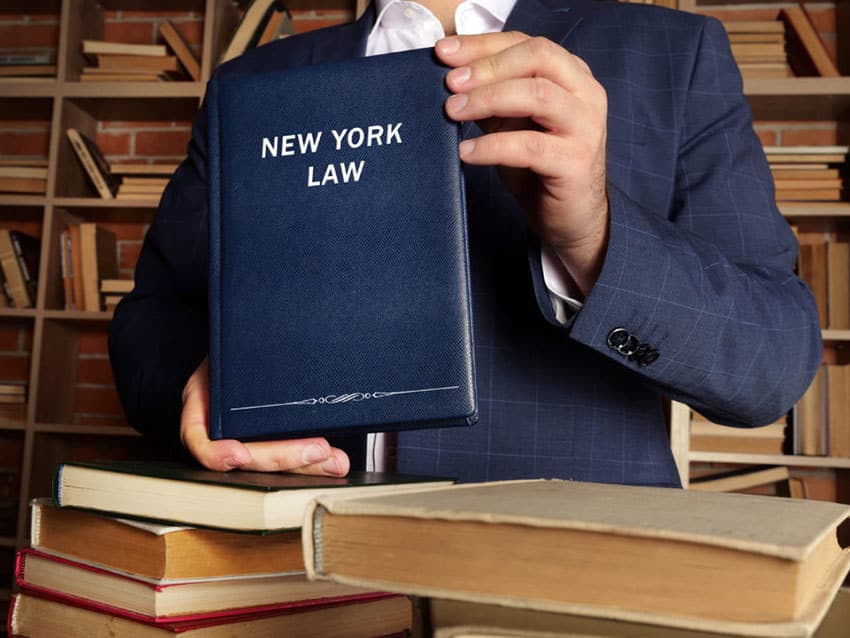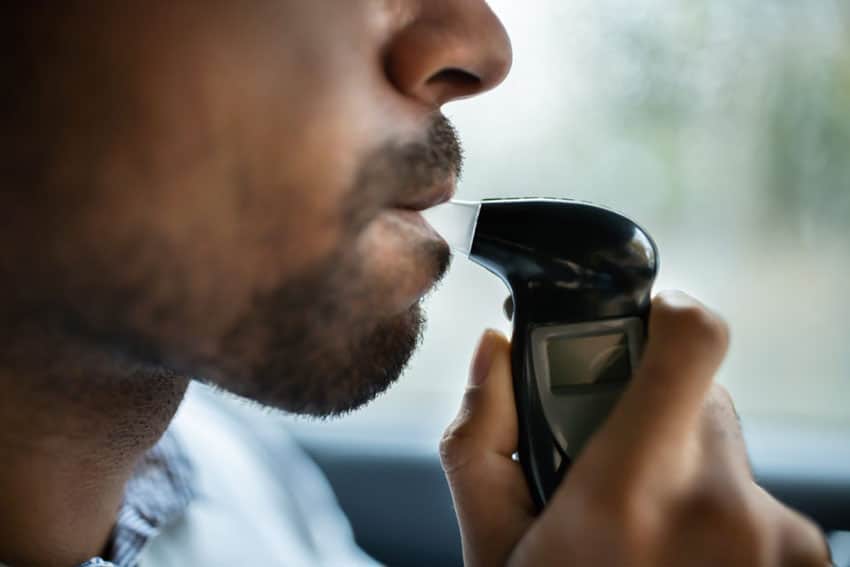Driving While Ability Impaired (DWAI) Drugs
If you or someone you love has been charged with a Driving While Ability Impaired by the Use of a Drug, then you are not alone. We can help. Contact us today to discuss your case free of charge at: 1-866-792-7800. Below are the current New York’s DWI penalties related to a Driving While Ability Impaired by the Use of a Drug.
Definition
Operating a motor vehicle while your ability to do so is impaired by the use of a drug. Can be shown by any evidence of impairment by any drug (with the exception of alcohol).
DWAI Drugs Penalties
Misdemeanor conviction resulting in criminal record, maximum fine of $1000, up to 1 year in jail, 3 year period of probation, revocation of driver’s license for at least 6 months.
A person can be convicted of a Driving While Ability Impaired by Drugs (DWAI: Drugs), if he or she is accused of driving while his or her ability to do so is impaired, as a matter of law, by a drug. This is true regardless of whether the drug is technically legal to possess, illegal to possess or ingest, and/or whether the drug is prescribed or not. However, the particular impairing drug must be listed as a controlled substance under the New York State Public Health Law. As a result, although some motorists may have been impaired by what they consider to be a drug at the time of driving, impairment by some drugs may not establish a violation of the law for the purposes of DWAI: Drugs.
In addition to DWAI: Drugs, a new law has passed making it illegal for a person to operate a motor vehicle while impaired by either more than one drug, or by the combined influence of alcohol and any drug(s). This new law is called Driving While Ability Impaired by the Combined Influence of Drugs or of Alcohol and any Drug or Drugs (DWAI: A/D). It is important to note that although DWAI: Drugs is targeted specifically at those drugs listed under the Public Health Law as controlled substances, DWAI: A/D makes no such distinction.
If you have been charged with one of these offenses, you need an attorney who is familiar enough with the law of DWAI: Drugs and the new law of DWAI: A/D. Our team of dedicated DWI defense attorneys has the knowledge and experience you need. Call Nave DWI Defense Attorneys today to work for you.
Overview of Drug-Impaired Driving in New York
If you are facing drugged driving charges, call the experienced lawyers at Nave DWI Defense Attorneys today. Our highly trained team of attorneys understands the legal complexities of such charges, and will help you navigate these difficulties. Facing a DWI or related offense can be overwhelming, so your next best step is to hire Nave DWI Defense Attorneys for expert legal assistance.
There are a multitude of impaired and intoxicated driving offenses under New York law. Most drivers have probably heard of DWI, or driving while intoxicated. Most probably also know about DWAI, driving while ability impaired. There are two main categories of DWAI charges: alcohol-related and drug-related. Like DWI, there are several variations on the basic DWAI charge. A DWAI-Alcohol charge applies to motorists driving with a blood alcohol content (BAC) level between 0.05% and 0.07%. Upon conviction for DWAI-Alcohol, a driver will face a maximum fine of $500, a 90-day driver’s license suspension, and up to 15 days in jail.
The charge of DWAI-Drugs applies to drivers operating a motor vehicle under the influence of a drug listed as a controlled substance under the New York State Public Health Law. This misdemeanor conviction can result in a maximum fine of $1000, up to 1 year in jail, a 3-year period of probation, and license revocation for at least 6 months. What many New York motorists do not know is that this serious charge applies to motorists who are impaired by a drug or drugs the motorist has a legal prescription for, and has taken in accordance with that legal prescription. This is not a defense against the DWAI-Drugs charge.
Repeat DWAI-Drugs offenders may face a Felony DWAI-Drugs for committing a DWAI Drugs within 10 years of a prior conviction or convictions for an alcohol or drug related driving offense (other than DWAI). If a driver is convicted for Felony DWAI-Drugs, they can face fines up to $10,000, a prison term, probation, license revocation, and the requirement to install and maintain an Ignition Interlock Device for at least 1 year.
DWI cases typically get more focus in state legislature and the local news, but driving under the influence of drugs is quickly gaining more attention from law enforcement. According to the National Institute on Drug Abuse, approximately 10.3 million people reported driving under the influence of drugs in 2012. Recent reports from the National Highway Traffic Safety Administration reveal that in 2007 more than 16% of nighttime, weekend drivers drove under the influence of drugs. Not surprisingly, drivers between ages 18 and 25 are considered more likely to drive drugged compared with other drivers. Drugged driving is not just a national trend; this issue is increasing in New York as well with up to 3.7% of motorists driving under the influence as reported in 2009. With an increase in drugged driving across the state, law enforcement officials and the state legislature will likely continue to push for harsh penalties for this charge.
Driving Under The Influence Of Marijuana Can Be A Crime
It is no secret that public perception and legal restrictions on marijuana use are changing. And changes on polarizing issues tend to raise questions about the impact on current laws. For example, driving under the influence of marijuana.
Despite marijuana’s de-criminalization in New York, driving under the influence of the drug is still a crime. This crime is called Driving While Ability Impaired by Drugs. While drunk driving gets most of the attention, operating a motor vehicle while under the influence of marijuana can be dangerous and carries stiff penalties.
There are very few studies that have researched the dangers of driving under the influence of marijuana. Despite being low in number, such studies have found that a person is twice as likely to have an accident if driving under the influence of marijuana, as opposed to sober. In comparison, the likelihood of an accident while under the influence of alcohol is estimated to be nine times more likely than while sober. Driving under the influence of marijuana may not be as dangerous as with alcohol, but the penalties are still stiff.
Driving While Ability Impaired by Drugs carries a jail sentence of up to 1 year; fines ranging from $500-1,000; a mandatory surcharge; and a 6-month license suspension for a first offense. These penalties increase with repeat convictions and are the same as penalties given for Driving While Intoxicated. New York laws do not draw major distinctions between drugs and alcohol penalties because policymakers want to deter any type of impaired driving.
While it’s not as easy to determine drug impairment as it is alcohol impairment, states are trying to keep up by establishing legal limits of marijuana impairment, similar to the limits in place for alcohol.
In states such as Colorado and Washington, where recreational marijuana use has been legalized, the legal limit for marijuana in the bloodstream is five nanograms per milliliter of blood. However, The National Highway Traffic Safety Administration reported that,
“it is difficult to establish a relationship between a person’s THC blood or plasma concentration and performance impairing effects”.
Which means the jury is still out on just how much marijuana impairment is dangerous for operating a motor vehicle.
Currently, the most reliable method of detecting THC (an indicator of marijuana) is a blood test. While reliable, this method is slow and cumbersome; crime lab results can take weeks or even months to come back.
There is also skepticism as to whether THC levels in a person’s bloodstream are accurate indicators of impairment. Similar issues are raised regarding alcohol impairment and just how effective a BAC reading is in determining actual impairment.
Further, Officers may not currently have access to a device that can measure the amount of nanograms in a person’s bloodstream at the time of a traffic stop. The same was once true for measuring the amount of alcohol in a person’s bloodstream; but technology seems to have caught up.
Washington State University is currently developing a breath test to detect marijuana; however, the mere presence of marijuana does not automatically equal impairment.
Driving while impaired by marijuana may not be as statistically dangerous as driving under the impairment of alcohol, but the safest practice is to not drive under the influence of any mind-altering substances; the difference could be yours or someone else’s life, and serious consequences.
DWAI Drugs and Drug Recognition Experts
The State of New York recognizes the offense of DWAI Drugs (Driving While Ability Impaired By Drugs). A DWAI Drugs conviction results in a misdemeanour charge, with fines that may amount to anywhere between $1000 and $2000. For first-time DWAI Drugs offenders, there is also a penalty of having their driver’s license revoked for a period of 6 months. A second DWAI Drugs arrest within 10 years may result in a felony charge.
Many DWAI Drugs cases involve Drug Recognition Experts. The Drug Recognition Expert program was conceived in the City of Los Angeles in the early 1970s. Drug Recognition Experts are police officers or state troopers trained to recognize impairment in drivers under the influence of drugs other than, or in addition to, alcohol. Drug Recognition Experts follow a standardized protocol for examining a motorist suspected of driving under the influence of drugs to determine (1) whether or not the suspect is impaired; and if so, (2) whether the impairment relates to drugs or a medical condition; and if drugs are involved, (3) what category or combination of categories of drugs are the likely cause of the impairment.
Drug Recognition Experts are highly trained and most must become certified as Drug Recognition Experts. The training usually involves classroom training as well as on-the-job training. Drug Recognition Experts usually take a course on drug categories and on signs and symptoms that those drug categories produce both alone and in combination with every other drug category. In New York, there is a Drug Evaluation and Classification Program for police officers that formally trains Drug Recognition Experts.
In the case of People v. Quinn, the court considered a case where a New York driver was suspected of driving under the influence of cocaine. The arresting officer in the case was a state trooper who had received over 72 hours of training as drug recognition expert. The court held that the trooper was allowed to testify as a Drug Recognition Expert and give his observations and opinions made while testing the defendant that she was impaired by cocaine while she was driving. The court held that Drug Recognition Expert (DRE) protocol was generally accepted as reliable by the scientific community, and that this testimony could be admitted as scientific evidence in prosecutions for operating a motor vehicle while under the influence of drugs.
Drug Recognition Experts generally use the “Drug Evaluation and Classification Process” which was developed by the Los Angeles Police Department in conjunction with physicians. Drug Recognition Experts give examinations to suspected DWAI Drugs drivers which include takes the driver’s brief medical history and assessing their pulse, blood pressure, body temperature, pupil size and reaction to light, and psychomotor function. The Drug Recognition Expert also examines the driver’s ocular tracking, smooth pursuit and Horizontal and Vertical Gaze Nystagmus.
Drug Recognition Experts are not only trained for investigative purposes, they are also trained to identify medical impairments in DWAI Drugs cases. Indeed, Drug Recognition Experts have, in many cases, recognized drivers who were in the midst of a medical crisis and made sure that they were not charged with DWAI Drugs.
DWI Laws and Prescription Drugs
DWI charges are not always the result of drinking alcohol and driving. The consumption of street drugs, illegal drugs and prescription drugs can also lead to DWI charges if they impair a driver’s ability to operate his or her vehicle. It is important to note that even if a driver has a prescription for a particular drug, driving while impaired by that drug may result in DWI charges. New York DWI law provides for specific charges and penalties in cases of prescription or other drug abuse.
The discussion of driving while impaired by prescription drugs is a fresh one. Just this week, in Connecticut, a 32-year-old woman was arrested after she blacked out and drove through the lawn of another resident. MyFoxNY.Com reports from a Huffington Post article that the woman had been driving her four-year-old daughter to a local day care when she blacked out. The woman claimed that she suffers from narcolepsy, a condition that is known to cause excessive sleepiness during the day, and sometimes results in the sudden onset of sleep. Law enforcement officers, however, were able to obtain an admission from the woman that she had taken several prescription drugs earlier that day, including oxycodone. The woman was charged under Connecticut’s DWI law, among other charges.
In New York, in addition to other charges, drivers who operate vehicles while under the influence of prescription drugs may be charged under the state’s comprehensive DWI laws. Under the New York Code on Vehicle and Traffic Laws, it is unlawful for a driver to operate a vehicle while impaired by the use of drugs. The penalties for Driving While Intoxicated (DWI) and Driving While Ability Impaired by a Drug (DWAI-Drug) are similar. Under the New York DWI law, a typical first time DWI or DWAI-Drug conviction may result in a maximum jail sentence of 1 year; a fine of between $500 and $1,000, and revocation of the driver’s license for at least six months. A typical second DWI or DWAI-Drug offense within ten years of the first offense may result in a jail sentence of up to four years, a fine between $1,000 and $5,000, and a license revocation for at least one year. A typical third conviction of DWI or DWAI-Drug within ten years of the first and second offense may result in a jail sentence of up to seven years, a fine between $2,000 and $10,000 and license revocation for at least one year. All of these sentencing guidelines can be increased based on factors such as multiple alcohol or drug violations and other aggravating factors.
The exclusive purpose of this article is educational and it is not intended as either legal advice or a general solution to any specific legal problem. Corporate offices for DWI Team Defense Attorneys are located at 432 N. Franklin Street, Suite 80, Syracuse, NY 13204; Telephone No.: 1-866-792-7800. Prior results do not guarantee a similar outcome. Attorney Advertising.











